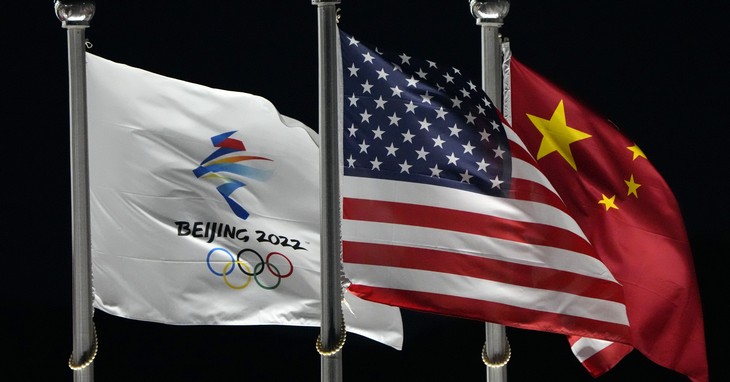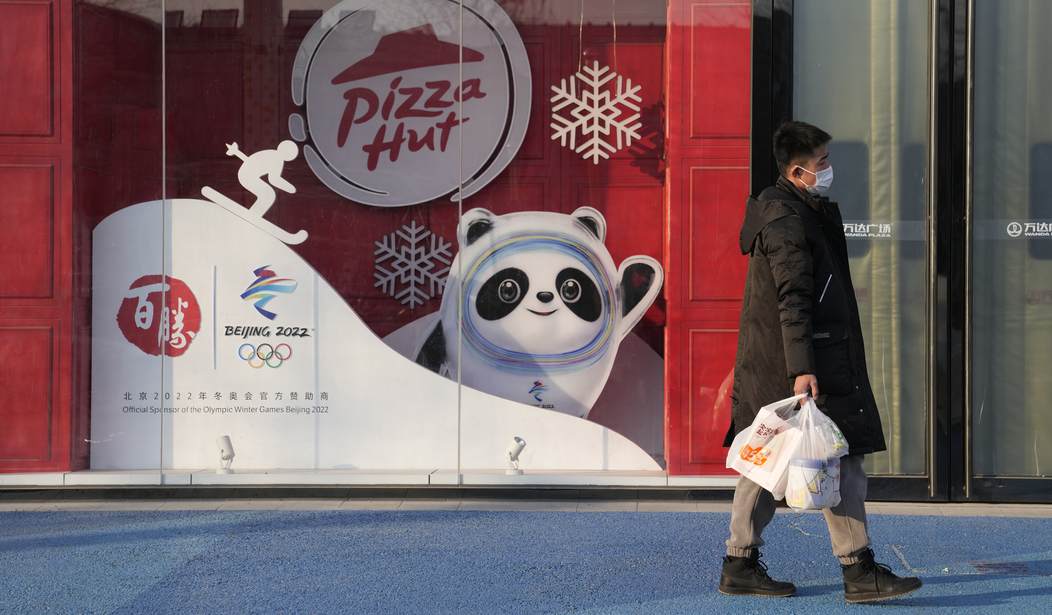Holding the Games in China once again creates myriad problems for all participants, corporations included.
It is rather clear the Chinese government has exerted influence on the fairly easily influenced International Olympic Committee. One needs only look at the fact that as difficult as it is to win a bid to host the Games, not only is the country holding an Olympiad for the second time in less than 15 years, it is being held in the exact same city. Between the Chi-Coms and the IOC, it appears to be a marriage of the corrupt.
And that was the union that has launched a number of challenges, for athletes, broadcasters, and the many companies attached to the event. Due to the pandemic, China has imposed not only stringent preventative protocols, but it stated severe quarantine restrictions on any athletes who might test positive while at the Games. A mandated period of weeks, and even possibly months, was enough of a deterrent to keep the NHL from sending players. The league was already postponing games due to the Omicron surge, and the prospect of players being kept away during a playoff run was a deal-breaker.
The COVID issue has also created a curiosity for the host American television broadcaster, NBC. The network – which spends heavily on the rights, and is banking again on the Olympics to boost its ratings and the Peacock streaming service – is not sending correspondents to China. Instead, they are hosting the Games from an Olympic studio in Connecticut. Likewise, ESPN will also refrain from sending reporters to Beijing. It is an odd reality, but one you cannot entirely blame on pandemic issues.
Then, they have had to severely downplay advertising promises. After record-low ratings for the Tokyo Games, the network had to provide make-good advertising slots available after failing to meet promised audience numbers. For the Beijing Winter Games, NBC has scaled back that assured audience figure by a surprising 50 percent.
The technology concerns of going to a nation like China is not just something to worry about; it is a severe concern. With the iron-fisted oversight of the Chi-Com government, technology being affected is all but assured. China has nationwide blocks on many western social media platforms and other websites its government deems threats to their sanctity – not just jokingly referred to as The Great Firewall of China.

Even while the Chi-Coms ease these restrictions for the foreign visitors, it is expected that any tech used on the mainland is primed to be compromised. The FBI has instructed athletes to leave behind any personal devices, because of the all but assured reality of being violated and tracked. Beyond the state-sponsored hacking efforts, the Chinese Olympic authority will require all athletes to load a health-tracking application to their phones. It is for this reason all athletes are instructed to obtain burner phones once in China.
The looming reality of Chinese human rights has also caused a headache for American companies which normally are enthusiastic participants in the Games. Brands we normally see working to be entwined with the Olympics have become almost coy. There has been much being said in the States about consumers asking how companies can lend financial support to a nation of human rights violations. Andrew Malcolm here wrote that consumers would not only understand but support companies withdrawing from the China Games. That has led to a noticeable shift in their marketing.
The main issue is that over the past few years, many corporations have been on a mission of social activist pandering and virtue-signaling. This has led to an overall feeling that if corporate America wants to be draped in a woke agenda, then their active financial involvement with China presents a huge contradiction. How can the companies that have been vocal about domestic issues and delivered lectures on social propriety be seen supporting a government that denies many basic rights, and even is seen operating ethnic internment camps?
The decisions can be subtle at first, but soon become revelatory. Credit card company VISA is usually a fixture during the Games, but this year they are a far more quiet participant. Proctor & Gamble, which touts many equality issues in its marketing, is directing its focus on the athletes, not the event locale. Delta Airlines is taking a similar approach, centering its campaign on Team USA. Many others are going forward with their campaigns, while leaving out the word “Beijing” whenever possible.
The real risk is that the corporations cannot withdraw their support entirely, out of fear of angering the Chinese and losing out on opportunities to access that lucrative market. This has become a self-induced migraine for Coca-Cola. Recall that company had become extremely vocal in opposition to Georgia’s new election laws. CEO James Quincy was adamant in calling the state wrong for its new stance on voting.
Now, Coca-Cola faces the reality of being hypocritical, as it supports Chinese interests. As a result, Coke is barely acknowledging the Olympics here in the US. The majority of its promotional push is in China, while suspending most domestic advertising.
In Atlanta, soda aisles in grocery stores are bereft of Olympics-themed displays. As the opening ceremony unfolded in Beijing on Friday, the main page of Coke’s U.S. consumer website made no mention of the Games. Coke told The Atlanta Journal-Constitution it instead will “activate the Games through our local, on-the-ground team in China.” That includes Olympics-themed cans and branded displays.
That is a marketing misfire of their own making. It is one that many companies are now grappling with, as they have trapped themselves with prior activist stances. If as a corporation you boldly declare you are dedicated to social causes and promoting rights, how do you then partner with an oppressive regime with significantly worse social behavior?
The answer, as we are seeing with these Olympic Games: You do so as quietly as possible.














Join the conversation as a VIP Member